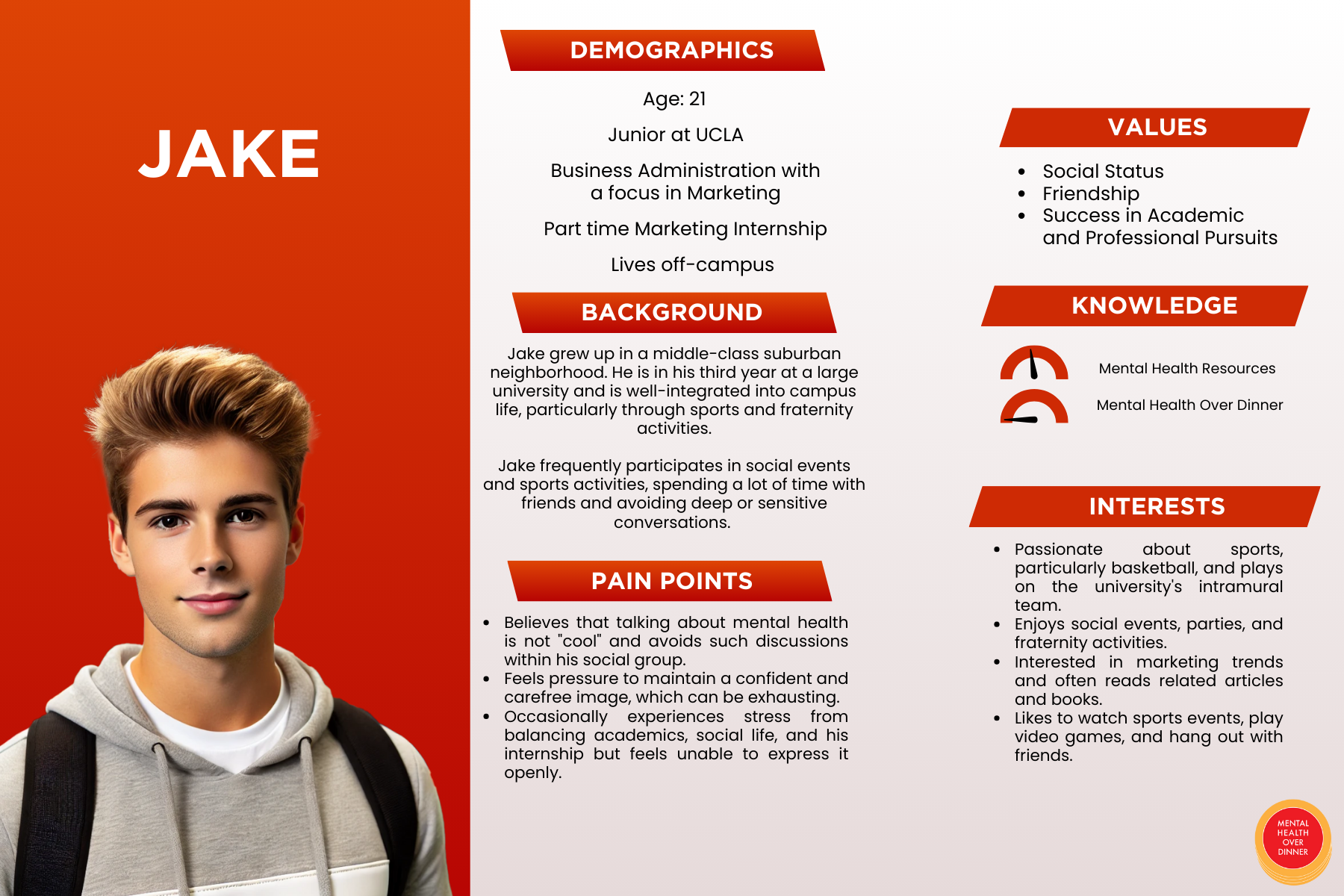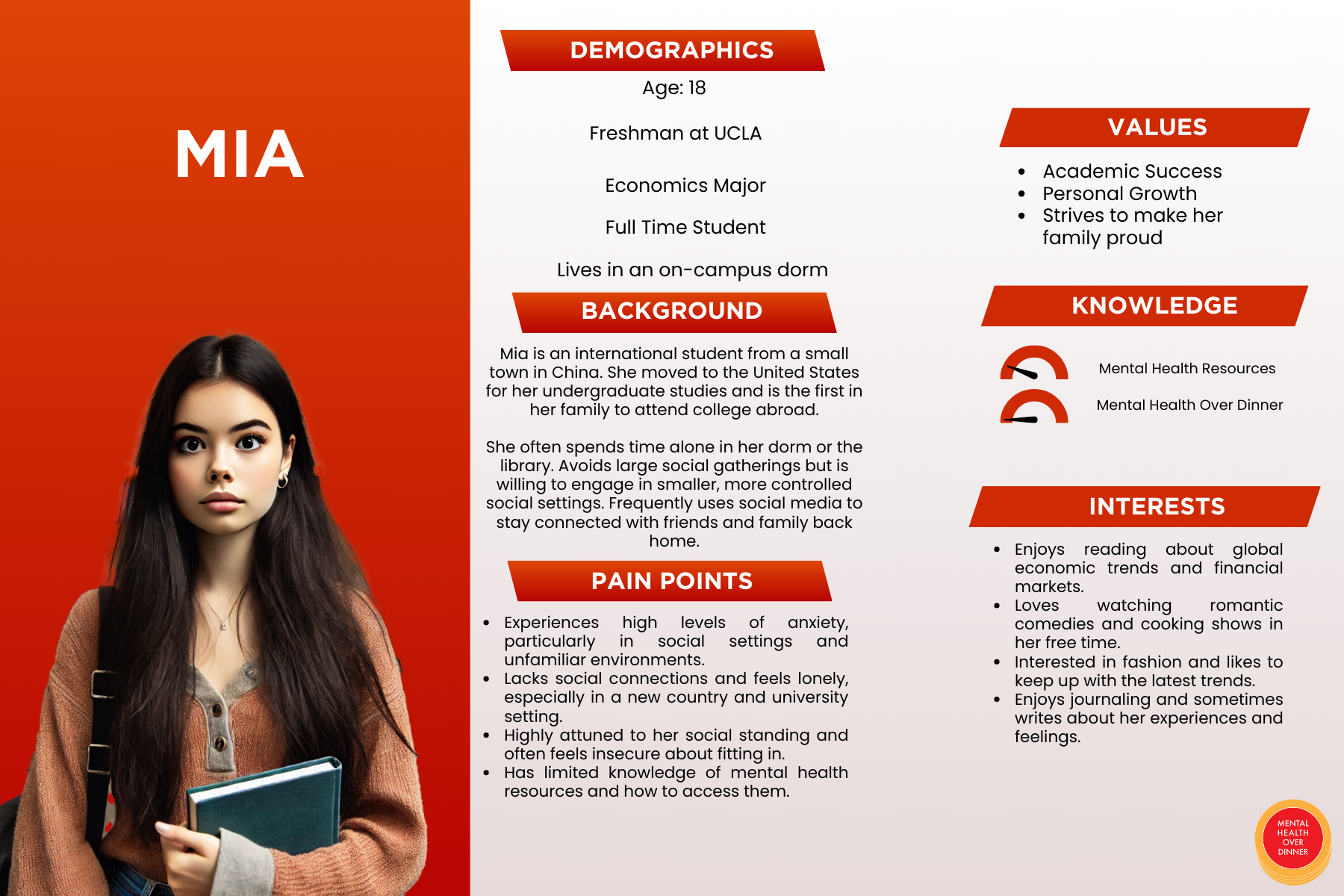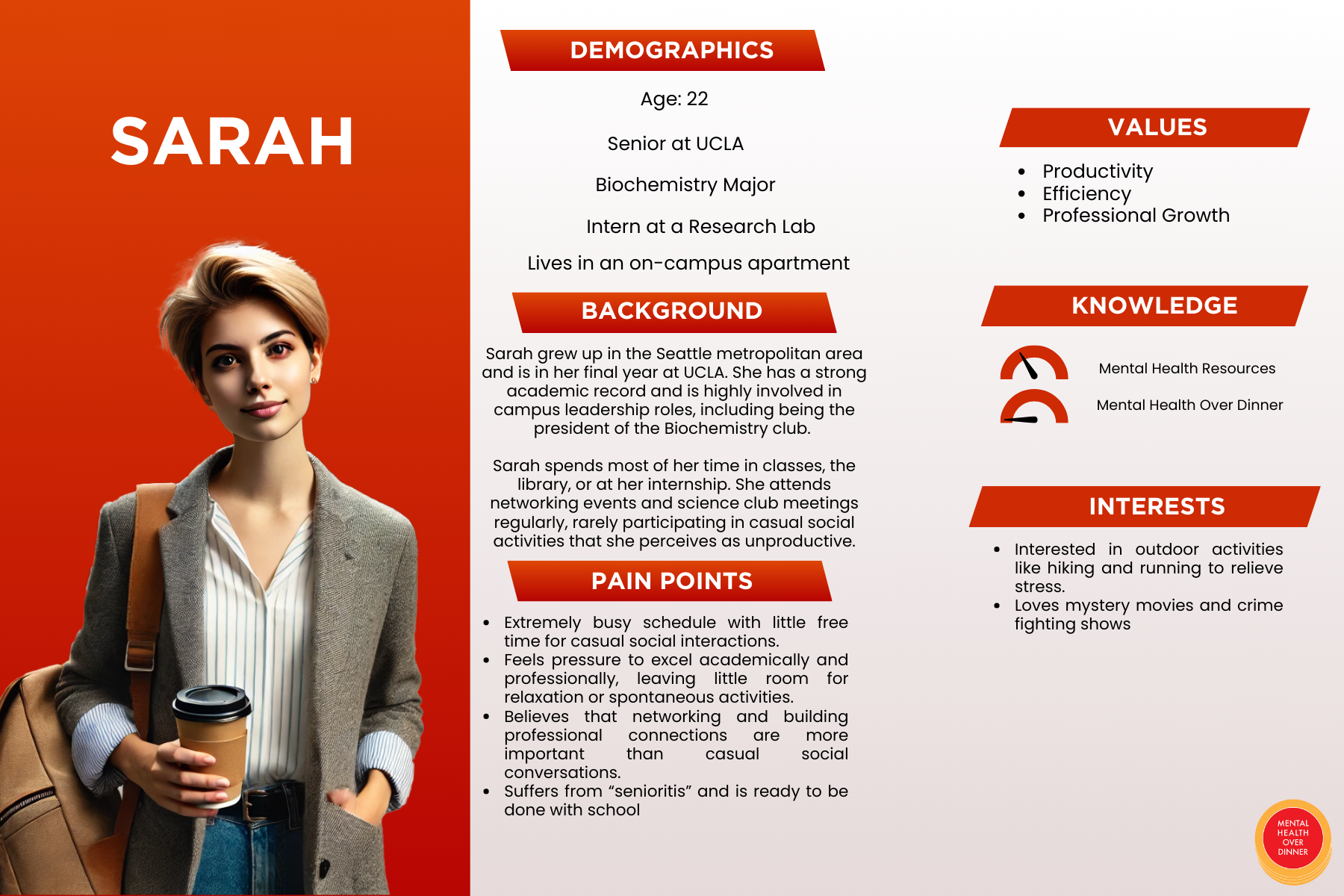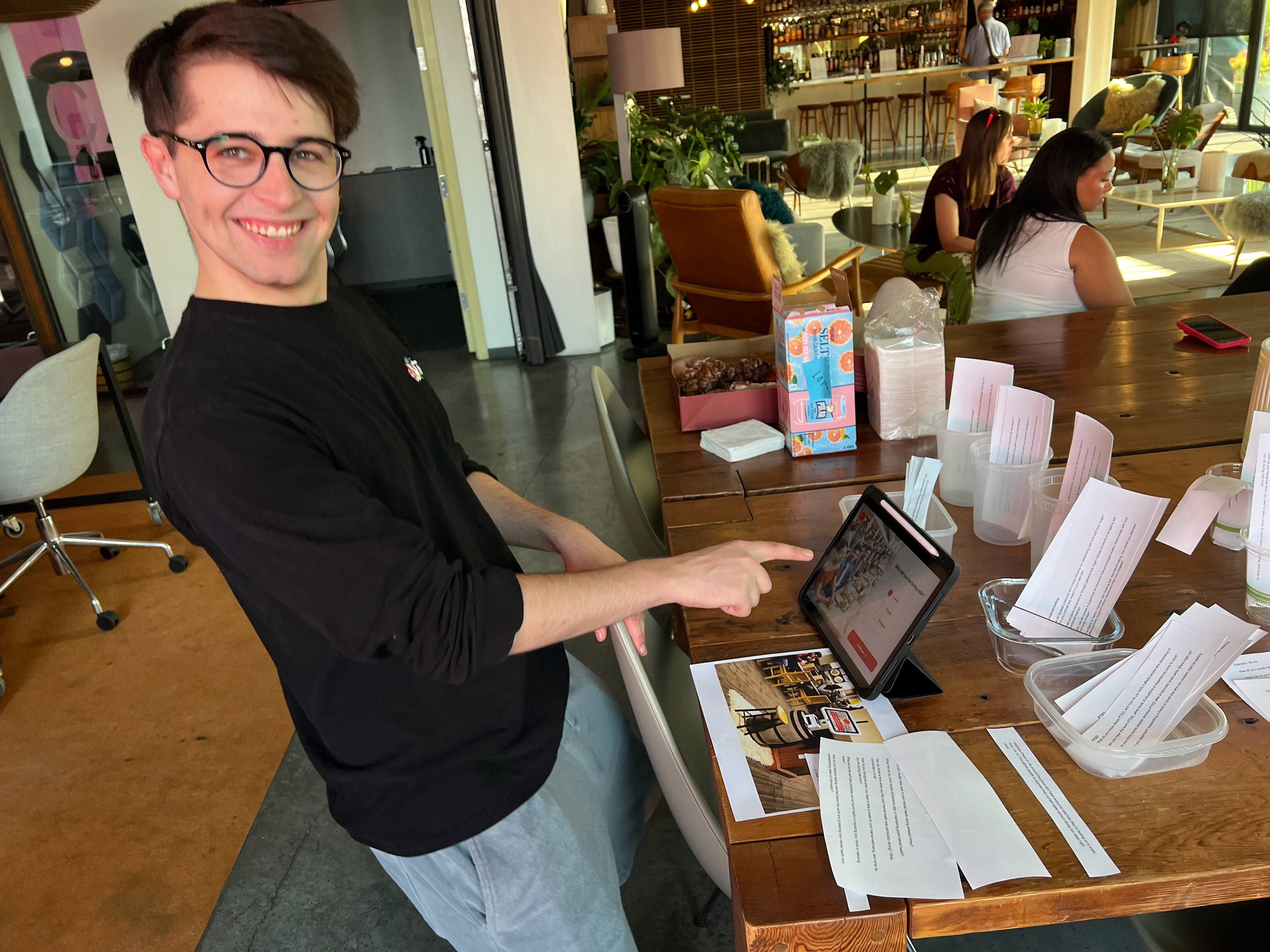[Academic Project]
The problem: Many college students, and adults, who suffer from mental health issues like depression, anxiety, or other conditions do not seek or receive the help and support they need due to stigma and lack of access to resources.
The Solution: A kiosk intended to be installed in a university dining hall setting. Students can explore on-campus mental health resources, plan a conversation around mental health, or join existing conversations -- all in one place.
Over two quarters, I explored a solution for Mental Health Over Dinner, a non-profit trying to cultivate meaningful conversations around mental health.
I started by generating a creative brief that describes the problem.
Then I pitched the idea of a Kiosk to the founder of Mental Health over Dinner.
During the following quarter, I expanded on my proposal by meeting with industry experts on designing spaces that allow for hard conversations. Where should a kiosk be located in a dining hall? What should it look like? How do we avoid making it feel like an ATM?
I designed a paper prototype of the solution and then built a prototype in Figma.
I hosted a dinner where participants reviewed a prototype version of the kiosk and provided feedback. We engaged in a thoughtful dinner around mental health topics, and afterward, I conducted user interviews and a survey to gather feedback on the design.
Why
a
Kiosk?
- Encourages conversations about mental health in environments where students already have strong interpersonal connections.
- Implements the "Mental Health Over Dinner" model to guide and structure discussions among young adults who may be unsure of how to engage in conversations about mental health.
- Allows users to access mental health resources anonymously, facilitating privacy and ease of access without the need to disclose personal information.
- Broadens access to mental health resources for those unfamiliar with the "Mental Health Over Dinner" initiative, unacquainted with campus resources, or those who lack consistent internet access.
- Uses a touchscreen interface that is intuitive for the college demographic, making the platform easy to navigate and use.
Personas:



Initial Research:
Testing and Validation: Hosting a Dinner
I hosted a dinner to test a prototype of the kiosk. Guests went through the Figma file and at the end, I manually created a script for them using cut-out pieces of paper. A bit of a manual process, but it worked out. After each person went, I asked them their initial thoughts, after the dinner, I gave participants a survey to fill out and conducted user interviews.
We then had our dinner. We got pizza from a local joint, and dove deep into conversation about mental health topics.

Insights Gained:
- Guests enjoyed the experience of using a kiosk to generate a script for their dinner. It was described as intuitive and very easy to use.
- Curiosity is what would drive participants to use the kiosk in a university setting.
- Guests have mixed opinions on the mock-up of the kiosk in a university setting -- noting that the shag carpet and the general vibes of it were not what they would have expected,
- The Mental Health Over Dinner framework was effective in generating meaningful conversations in a relatively short time
- Guests would be more likely to attend one if invited, rather than hosting one themselves
“Being able to, like, eat something and kind of like, have your own thoughts, but feel safe and respected, was good. I like that”
- Test Dinner Guest
Learnings: Good to Great; Kiosk as part of a larger solution
- Partner with on-campus organizations that specialize in health promotion to cohost dinners at universities
- Have trained student employees host dinners in partnership with students outside the organization. They would:
- Organize food
- Customize scripts and resources to student needs
- Take care of administrative work— booking rooms, adhering to university policies, etc.
- Have trained student employees host dinners in partnership with students outside the organization. They would:
- Organize food
- Customize scripts and resources to student needs
- Take care of administrative work— booking rooms, adhering to university policies, etc.
- Opportunity to incorporate additional programming, like mindfulness, or other strategies to improve mental health
- Respect the decentralized nature of MHOD by having the kiosk, and allowing others to participate in a more institutionalized version
- Respect the decentralized nature of MHOD by having the kiosk, and allowing others to participate in a more institutionalized version